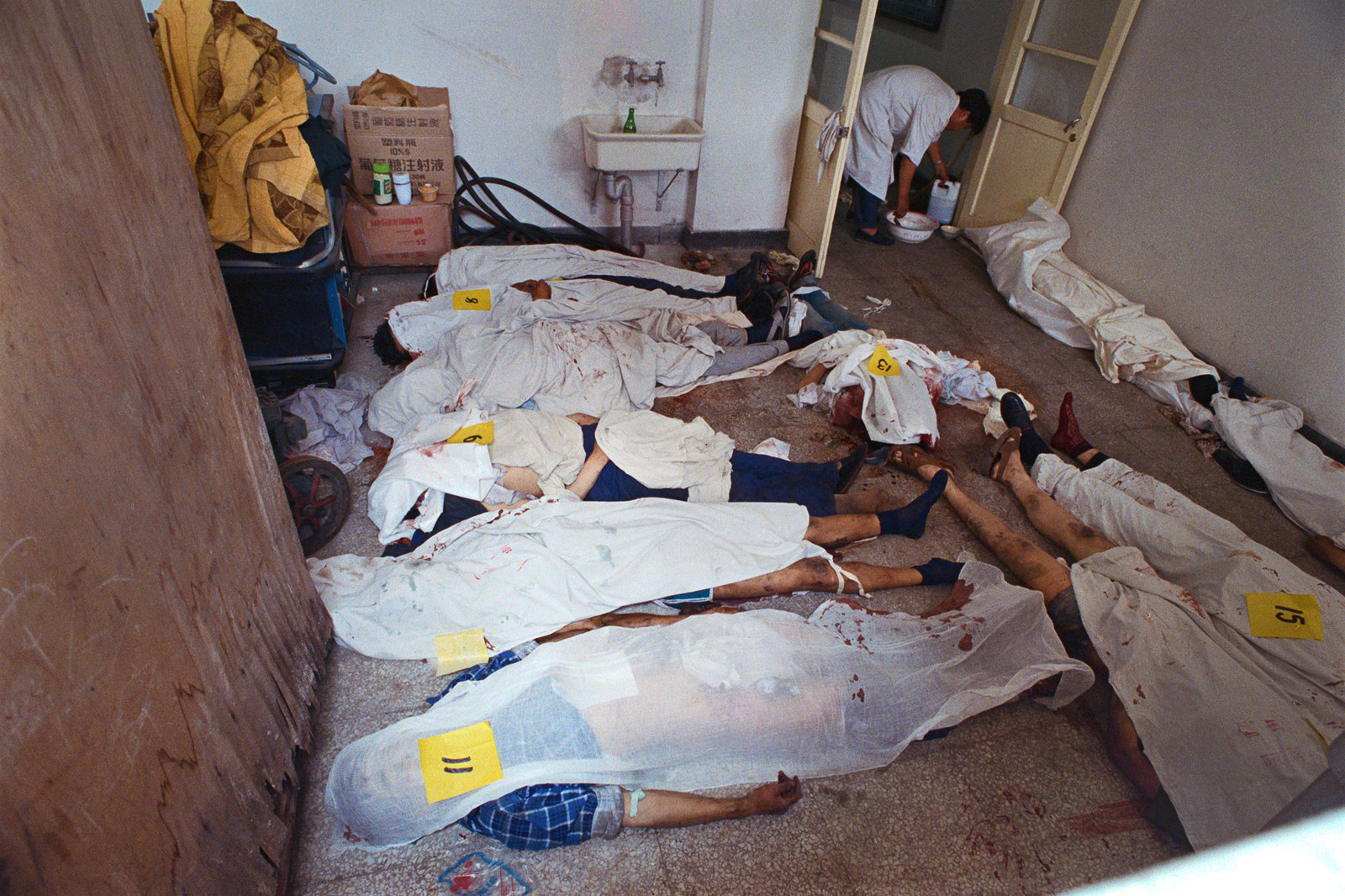
David Turnley / Getty Images
Killed demonstrators are gathered in a makeshift morgue on June 4, 1989.

Opinion Columnist
Thirty years ago in the spring of 1989, as the world’s most populous country teetered on the edge of freedom, I received a late-night phone call in my apartment in Beijing: The Chinese Army was invading its own capital.
Students and workers had made roads impassable by setting up barricades to block the army, so I jumped on my bicycle and pedaled furiously toward the gunfire. I reached Tiananmen Square shortly before the army, and then I watched as soldiers fired their automatic weapons directly at the crowd that I was in.
I was then the Beijing bureau chief of The Times, and I ran around that evening, the notebook clutched in my hand stained with the sweat of fear, to document horrors that remain seared into my memory. You never forget watching young people, some of the nation’s best and brightest, full of passion and idealism, stand up to machine guns — and then in an instant crumple bloody and lifeless on the ground.
Until that evening, millions of Chinese had marched freely for seven weeks in hundreds of cities across the country, denouncing corruption and seeking greater democracy. Sculptors had created a huge “Goddess of Democracy,” a Chinese version of the Statue of Liberty. Hope filled the air.
Then came the soldiers, firing not only on the crowds but even on families watching in horror from balconies. Troops fired at ambulances rescuing the wounded. Winter fell on China, and in political terms it hasn’t left.
It is indisputably true that China has dazzled economically, and critics like me should be humbled that life expectancy is today longer in Beijing (82 years) than in Washington, D.C. (77 years). The 10 percent most disadvantaged Shanghai 15-year-olds score better in math than the 10 percent most privileged 15-year-olds in America.
China is not like the old Soviet Union, which both impoverished and repressed people. Rather, China has saved lives, built universities at a rate of one a week and lifted more people out of poverty than any other country in human history — but it is deeply human, as one protester put it in 1989, to seek not just rice but also rights.
My memories of the massacre in Beijing are not only of government savagery but also of unparalleled courage on the part of the most humble citizens. I will never forget the rickshaw drivers, for whenever there was a pause in the gunfire, they would pedal their three-wheeled bicycle carts out toward the troops to pick up the wounded and rush them to the nearest hospital.
I particularly recall one burly rickshaw driver. He had a couple of bleeding people on the back of his cart and was pedaling furiously, his legs straining. He saw me and swerved toward me so that I could bear witness to his government’s brutality. As he passed, he pleaded with me: Tell the world!
https://www.nytimes.com/2019/06/01/opinion/sunday/tiananmen-square-protest.html
https://www.nytimes.com/2019/06/01/opinion/sunday/tiananmen-square-protest.html
No comments:
Post a Comment